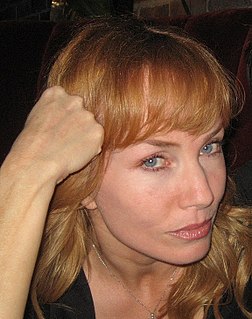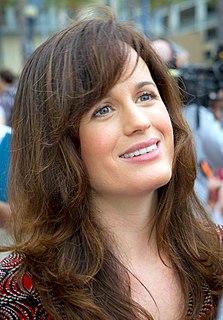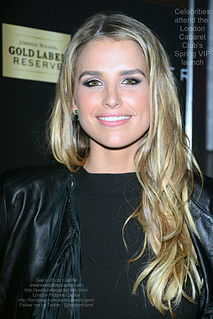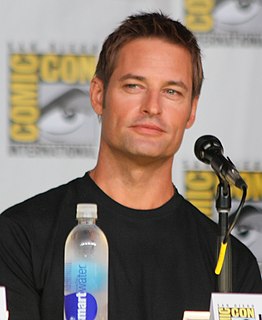A Quote by Sebastian Lelio
I was writing when I was very young, and then I became interested in everything - I wanted to do photography. I wanted to act. I wanted to write plays, and then I wanted to film and to paint, but I felt that film had a condition that reunites everything.
Related Quotes
I wanted to be a director first to protect my writing. I'm a playwright and you don't need to protect your writing when you're in the theater because everyone's there to protect the writing. When I had an idea for a film that I really cared about as my own, I wanted to direct it, and then I immediately became interested in directing in and of itself because it's such a deep art. You suddenly have all these tools at your disposal to tell the story.
I think my mother became the muse because she had everything when she was in Hollywood: she had the marriage, the success, the money, all the films she wanted to do and yet even her, she had a longing and wanted to work with a film that had meaning, something more profound. And I think that was very touching to father.
I wanted to be a cartoonist, and then I wanted to go into film - not as an actor, but as a writer-director - and then I found myself during film school at the University of Southern California listening to the Clarence Thomas hearings in class on my Walkman, and I realized L.A. was not really for me.
I wanted to be a musician. I just wanted to be famous because I wanted to escape from what I felt was my limitation in life... And I wanted to write music, and I didn’t know what I was doing and I never had the technique or understanding of it... But I’ve always played the piano and I can improvise on the piano, but the problem is that I can’t write down what I write. I can read music but I can’t write numbers.
My roommate in college in Austin, Texas, was Wes Anderson. Wes always wanted to be a director. I was an English major in college, and he got us to work on a screenplay together. And then, in working on the screenplay, he wanted my brother, Luke, and me to act in this thing. We did a short film that was kind of a first act of what became Bottle Rocket.
Walt had a seat-of-the-pants approach on what he wanted musically. We kind of 'read' the boss and had a very high batting average, but there were occasions when he felt we had just written the wrong piece for the situation he wanted. We invariably listened to what he wanted - he was very descriptive in what he wanted and we could read him. We'd go back to the drawing board and work out what he wanted. He was a great inspiration, but a tough taskmaster.
I started writing because I wanted to write scripts, but I wasn't very good at it. Then I started writing short stories, sort of as treatments for the film scripts, and I found I enjoyed writing short stories far more than I enjoyed writing film scripts. Then the short stories got longer and longer and suddenly, I had novels.
The deal was we had to have people accompanying us and they would ask us not to film something [in North Korea]. For example, we wanted to film at a certain place and there happened to be a building under construction and it didn't look as fancy as the other buildings, so they wanted us to shoot where everything looked finished and made a good impression of the cityscape.





































